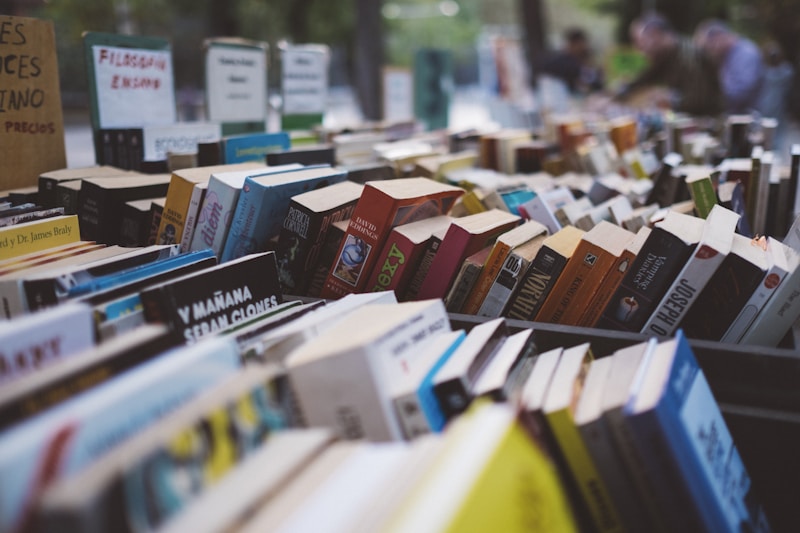Another year in which my reading intake was curtailed by the demands of being a co-founder and CTO at an early stage startup.
However, recent months have found me shifting my priorities to make time again for reading. Where intense study and the shock of the new had once sated my intellectual curiosity, I find myself once more in search of deeper waters into which I may plunge my thoughts.
The escape of literature provides a tranquil respite from the cacophony of startup life. But beyond this, it grants me the same mercy as ever it did - the ability to escape the bubble of the life lived by day, and experience the many wonders of the world past, present and future through the words of those capable enough to transcribe them. My appetite seems to have returned.
The Men Who Stare at Goats - Jon Ronson
What starts as an amusing investigation of the strange outputs of the collision between hippy culture and the American military-industrial complex (trained soldiers staring at goats in the hope of killing them with willpower alone), eventually finds a deeper and more disturbing relevance in the links to the atrocities at Abu Ghraib. As always with Ronson, incredibly readable but with hidden depths.
Justice - Michael J. Sandel
An enlightening and easily digestible discourse on both the history and contemporary debate around the philosophy of rights, freedoms and justice. What is particularly pleasing about Sandel is his ability to explore seemingly complex and unapproachable subjects such as this with clarity, brevity and readability.
The Bees - Laline Paull
An incredibly inventive debut from novelist Paull, the story follows the life of a lowly worker bee in the hive, presented as a kind of high-octane dystopian science fiction rollercoaster. The depth of research, wondrous mastering of genuine bee-haviour (sorry) into anthropomorphised drama, and above all the relentless, pitch-perfect, ebb-and-flow pacing all contribute to a novel which is a huge joy to read from the first to the last page.
The Lesser Bohemians - Eimear McBride
If the second novel by experimental Irish writer McBride fails to live up to the expectations of her debut, A Girl is a Half-formed Thing, that is only because the standard was set at the very highest bar of contemporary literary fiction. The Lesser Bohemians is told with the same, almost-formed thought patter, as its predecessor, but here the central protagonist is a drama student with a solid literary grounding, who embarks on a vividly-described affair with an older actor. The unconventional structure and experimental prose will not be for everyone, but I personally found it enthralling.
Greybeard - Brian Aldiss
With a plot from which the later Children of Men derives, Aldiss's novel follows a group of ageing friends living in a world in which no child has been born for decades. As the population ages and extinction looms, the twilight years of civilisation see a retreat into tribalism and superstition. Told with a remarkable emotional depth, the story sidesteps all the usual tropes of the genre to produce a compelling, insightful tale that muses on the nature of humanity itself. A masterpiece.
Things The Grandchildren Should Know - Mark Everett Oliver
This memoir by Everett, otherwise best known as E, the lead singer of American rock band Eels, is not your typical musician autobiography. With a life singularly struck by tragedy and coincidence, Everett writes pragmatically and with a wry sense of self-deprecation (also evident in his lyrics and a key source of his popularity in the UK). Charting his relationship with his estranged father (a notable theoretical physicist and author of the many-worlds theory), his mother and sister, and the repeated tragedy striking this small family, alongside his own growing success, the book is very readable and constantly surprising.
Nineteen Seventy Seven - David Peace
The second novel in Peace's hardboiled Red Riding saga of police corruption in 1970s Yorkshire is even darker, even stranger and even more brutal than the first instalment. I enjoyed it, but so unpleasant are the characters throughout that I will likely wait a few years before approaching the next chapter.
Nutshell - Ian McEwan
This wildly inventive comic novel from McEwan is a kind of bizarre reverse-heist story, in which the unborn protagonist narrates their plan for escape from the womb. With a simple conceit (the unborn child is fully aware and intelligent while still in the womb), the resulting novel is somehow a page-turning mystery, as the frustrated narrator can do little but observe the events occurring outside their immediate surroundings, and muse on the nature of things that they have heard described but have yet to see, hear or experience.
Roadside Picnic - Arkady and Boris Strugatsky
The best-known book by the Russian brothers (largely because of Stalker, the cinematic adaptation by Tarkovsky) follows the lives of a group of people living near to one of the "zones" left behind by an alien visitation some years previously. An industry has built up around attempting to salvage little-understood artefacts from the site, a pursuit reliant on "stalkers" risking their lives to venture illegally into the hazardous zone. The story is largely domestic but with one eye on wider questions. Beautifully constructed.
Out of the Wreckage - George Monbiot
Presenting a diagnosis, prognosis and clear prescription for the ills of our current political situation, this book by environmentalist Monbiot manages to be surprisingly optimistic about our ability to undo the damage done to democracy in recent years. Well-structured, informed and clearly presented, the book is almost a step-by-step guide on how to restore some sanity to our democracy.
The Doors of Perception - Aldous Huxley
This detailed account of the Brave New World author's first experience taking mescaline also succeeds magnificently as an essay on the nature of perception. Huxley muses on art, sensation and the limitations of normal human experience, and is a surprisingly vehement proponent of psychedelic experimentation.
